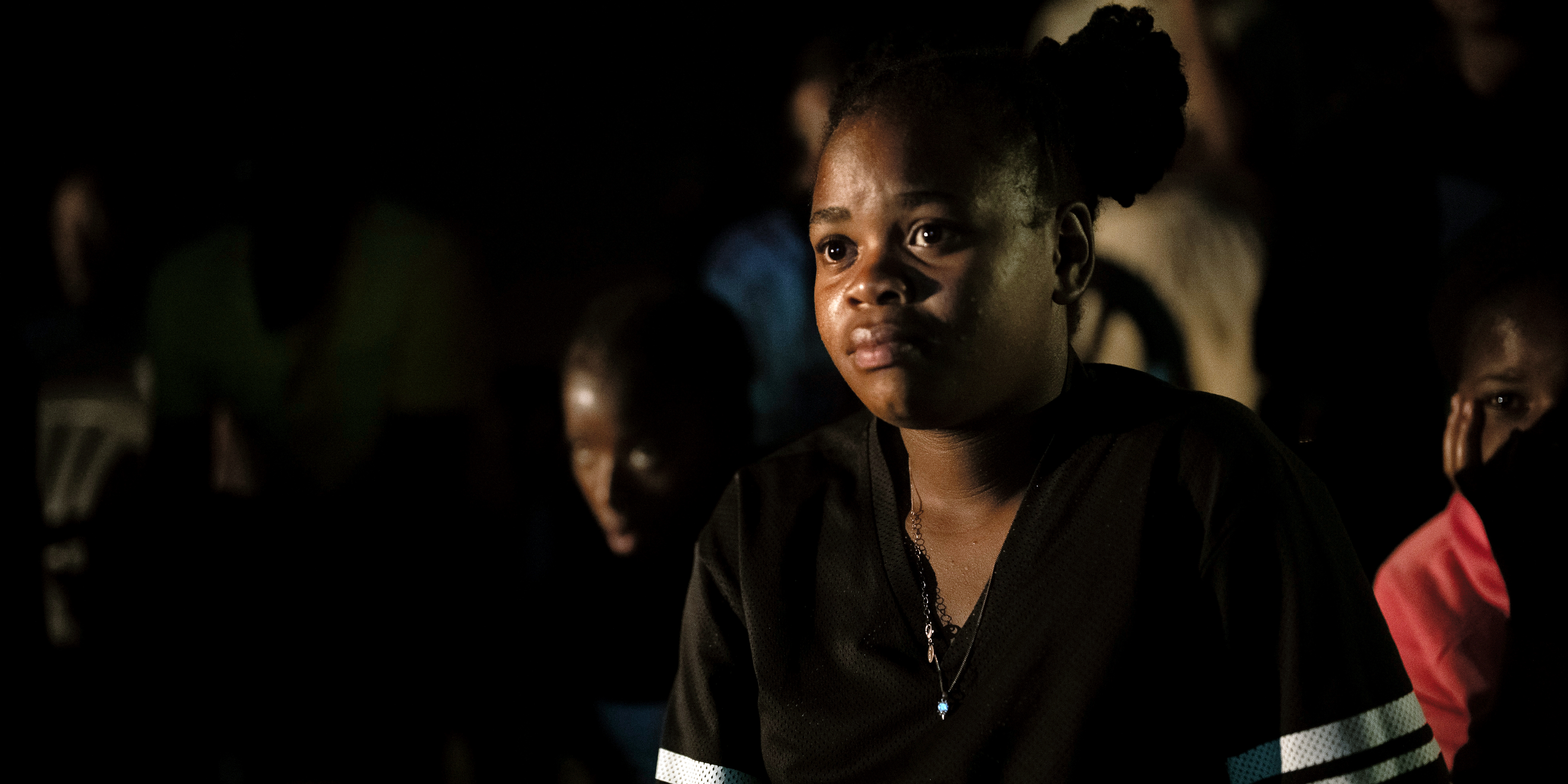ROAD TO 2024 ELECTIONS
Solar-powered cinema lets democracy shine — and gets South Africans voting

Community film screenings are getting young South Africans talking – and changing their minds about voting.
For many people, democracy feels like an abstract notion with no tangible bearing on their lives. It is seen as laden with legal and political formalities, failing to enliven the concept not only in everyday people’s lives, but in their imaginations too.
This is where film provides a full sensory experience of democracy – a way to examine, understand, question, disagree, promote, love, dream, fight, hate and, most importantly, live it.
Sunshine Cinema is a nonprofit organisation founded to bring cinema to the people, especially those in remote and marginalised areas, using its solar-powered equipment, which is programmed with more than 100 films. Its ambassadors and facilitators travel out into the communities and select films specifically for each community.
The chosen films are an entertaining entry point into community conversations that need to be had.
“We want stories to reach people,” says Sydelle Smith on the impetus for establishing Sunshine Cinema with Rowan Pybus in 2017. Sunshine Cinema hopes to have an impact not just in the communities it visits, but on policymakers and leaders as well.
Justice is the motive behind Sunshine Cinema’s work. Smith’s preferred definition of justice is one proffered by the African American philosopher Cornel West: “Justice is what love looks like in public.”

The screening of the Zimbabwean movie Shaina and an interview with Frank Chikane by Tessa Dooms at Embalenhle, Secunda, in Mpumalanga. (Photo: Kamvelihle Stemela / Makhulu Media)
Smith says Sunshine works with a lot of young people in the communities visited who are burdened by mental health issues, drug and alcohol abuse and unemployment. Facilitators select films that can support conversations about these issues.
It also partners with organisations that care about such issues and have expertise that Sunshine Cinema may lack.
In light of the coming elections, Sunshine Cinema has partnered with organisations such as the Ground Work Collective, Futurelect and My Vote Counts, which work in civic education and community organising using film to engage communities, especially rural ones, on critical issues such as voter education and attitudes towards voting.
Read more in Daily Maverick: In the age of coalitions, an involved, active citizenry is paramount
Ironically, the origin of using film in communities in this way was the use of mobile cinemas in Africa as a tool for colonial indoctrination, Smith explains. An example was the shameful Bantu Cinema experiment in which the British authorities used cinema as propaganda to get audiences to pay their poll tax. However, Sunshine Cinema uses film not to compel specific behaviours, but to create a space for informed community conversations.
According to Nonto Sibanyoni, Sunshine Cinema’s media coordinator, it has taken its voter education films to five provinces so far. The films include:
Dear Mandela, the story of Abahlali baseMjondolo, an activist group defending and championing the right for people to dwell in informal settlements without fear of violence or eviction by the government.
Softie is about Kenyan political activist Boniface “Softie” Mwangi, who runs for office in a regional Kenyan election and strives to run a clean campaign against corrupt opponents.

The screening of the South African drama Poppie Nongena at Mooidraai, Sasolburg, in the Free State. (Photo: Kamvelihle Stemela / Makhulu Media)

The screening of the South African drama Poppie Nongena at Mooidraai, Sasolburg, in the Free State. (Photo: Kamvelihle Stemela / Makhulu Media)
Influence, about the British public relations company Bell Pottinger and its weaponisation of communications to sow divisions in South Africa for the benefit of certain political actors.
After the movie screening, the Sunshine Cinema facilitators guide complex conversations about what has been shown on screen and what these young people experience in real life. The facilitators have seen widespread apathy and anger among those who attend.
Most of them do not see the point of voting. However, in some young people a resolve is emerging to participate in these elections – to be part of the solution.
After a screening of Influence in the Northern Cape, one young person had this to say: “I got to see how the world is controlled. I had no idea that politicians use PR companies to influence people using information that we get from the media.
“This becomes painful to watch because it leads to conflict among communities.”
After watching Dear Mandela, another participant remarked: “We cannot complain about the state of the country without the necessary information.”
A facilitator in the Free State reported that the conversation after the screening went on until late in the evening, with participants not only asking questions, but also providing some of their own answers.
According to Sibanyoni, in certain communities facilitators are viewed with the suspicion that they are there to campaign for a particular political party. Sunshine Cinema strives to be transparent about what it really represents: an informed citizenry and democracy itself.
Sibanyoni says the reluctance of some participants is apparent at first. But as facilitators work to sustain engagement and dialogue with participants through repeated screenings, they ultimately earn their trust and a change of heart becomes evident in their lively participation.
A concern the facilitators have reported is how little the young participants know about South African history. However, the screenings have sparked curiosity in some participants, not only about South African history but also about their own family and community histories.

The screening of the South African drama Poppie Nongena at Mooidraai, Sasolburg, in the Free State. (Photo: Kamvelihle Stemela / Makhulu Media)
The Ground Work Collective complements the screenings and the conversations that follow by providing voter education to the young audience, who, among other things, are shown how to register to vote. They are also given explanations of, for example, the new three-ballot system.
What’s really exciting for Sunshine Cinema and its partners is when participants decide to register to vote. However, the lively community conversations are also, in themselves, an example of democracy in action.
Smith hopes that funding for Sunshine’s work will continue beyond this month’s elections because she has found that the work has to be long term to be effective. She hopes it will be sustained all the way through to the 2029 elections.
Perhaps the urgency of the work is best captured by the words of a participant in Mpumalanga: “These elections are now in our hands; our parents are now old.”
Young people are coming of age, but some have been unprepared to take the reins of responsibility.
However, with sustained civic education work by Sunshine Cinema and its partners, there is a better chance that young people will show up to the polls and engage with the democratic project beyond the elections. And that, in turn, means our democracy stands a chance. DM
This story first appeared in our weekly Daily Maverick 168 newspaper, which is available countrywide for R35.

Daily Maverick has closed comments on all elections articles for the next two weeks. While we do everything in our power to ensure deliberately false, misleading and hateful commentary does not get published on our site, it’s simply not possible for our small team to have sight of every comment. Given the political dynamics of the moment, we cannot risk malignant actors abusing our platform to manipulate and mislead others. We remain committed to providing you with a platform for dynamic conversation and exchange and trust that you understand our need for circumspection at this sensitive time for our country.

















